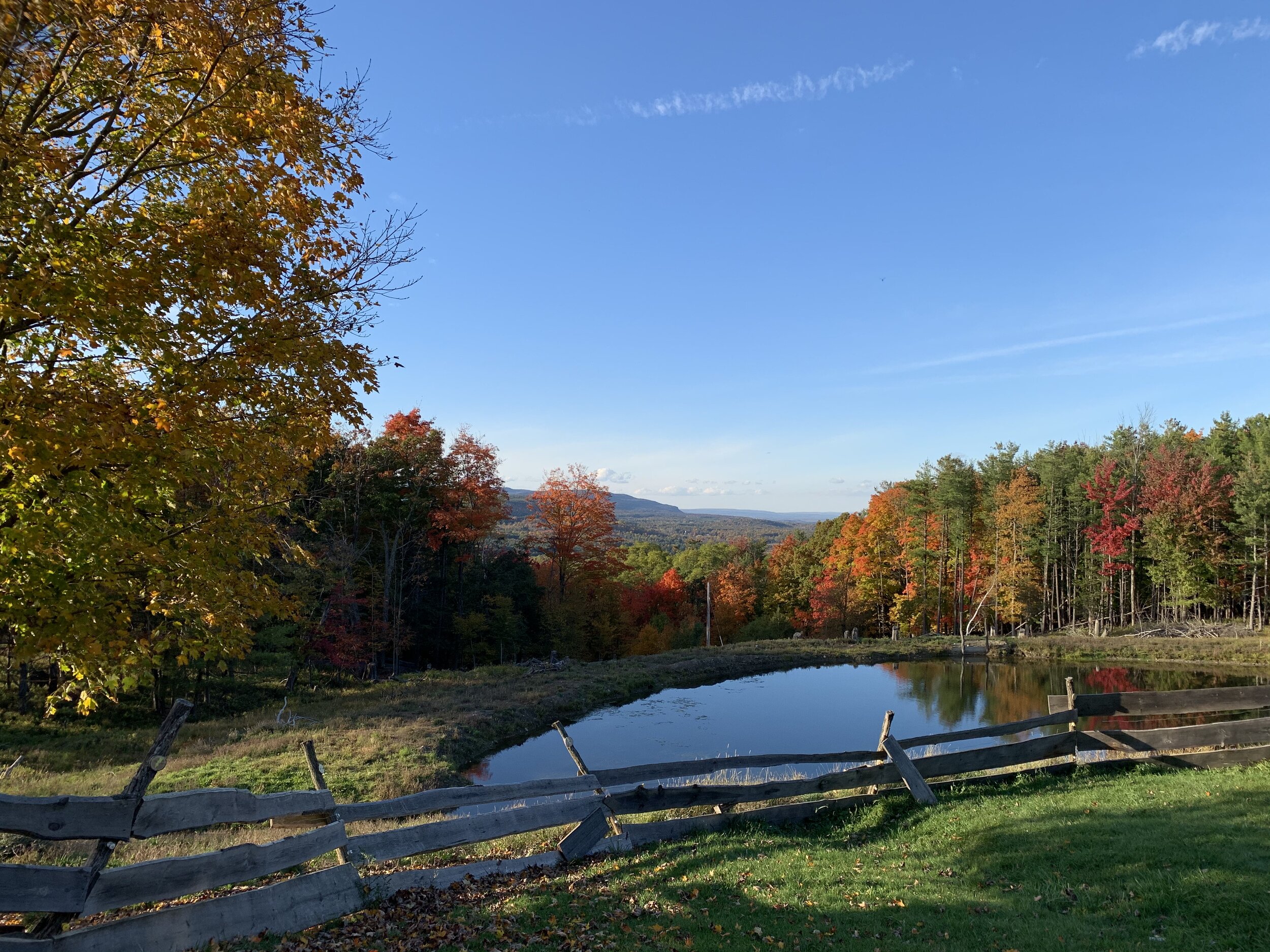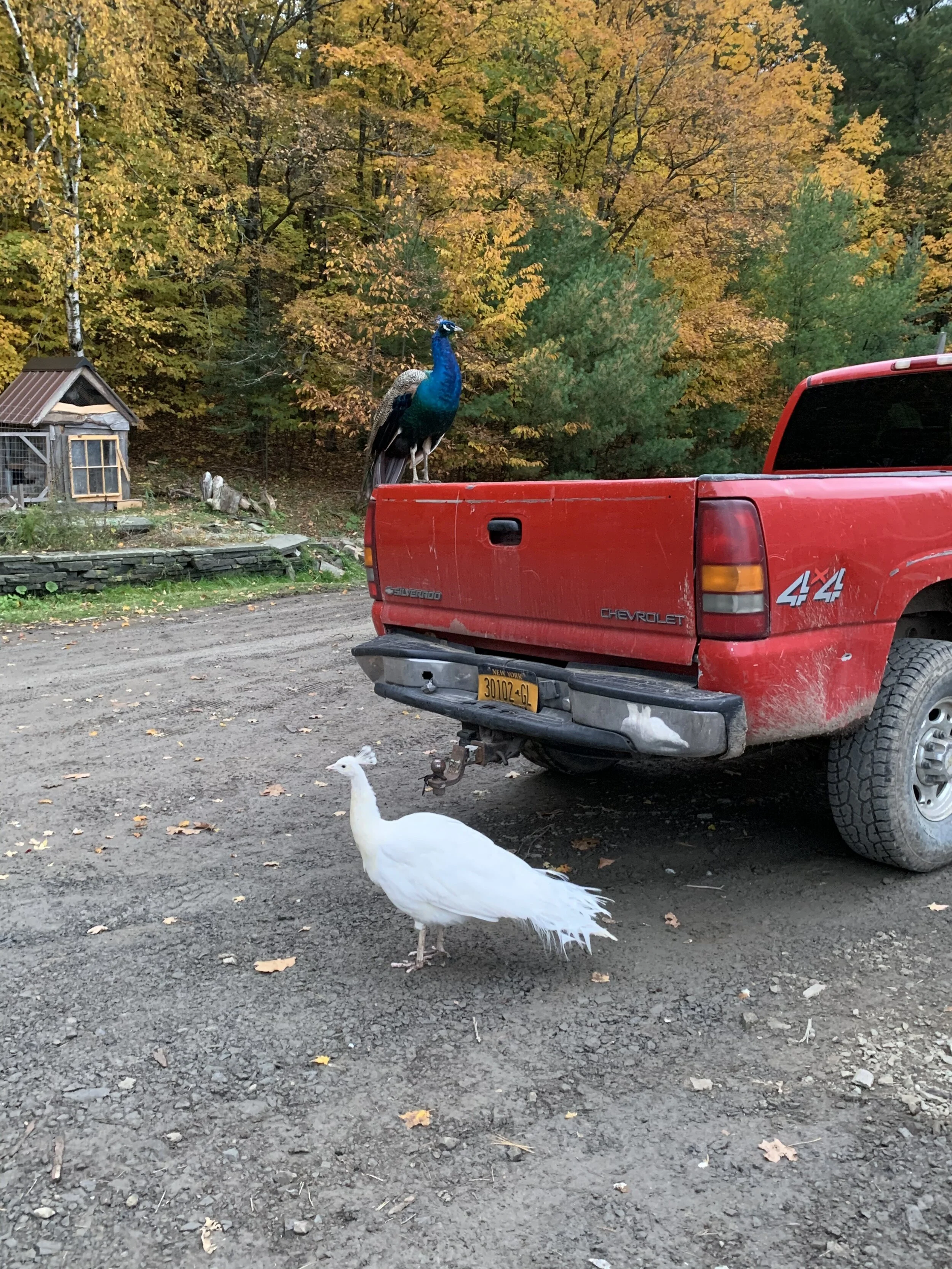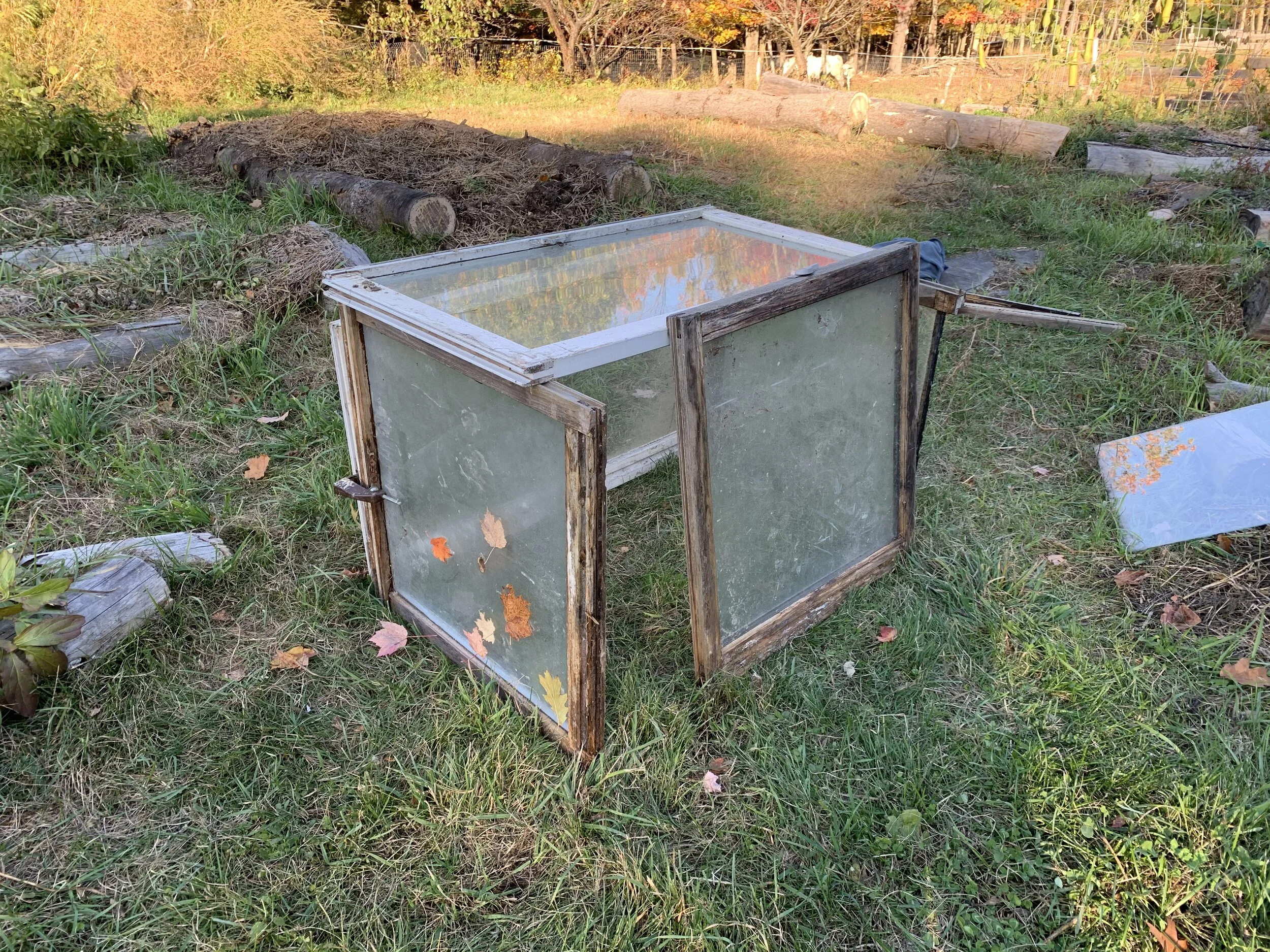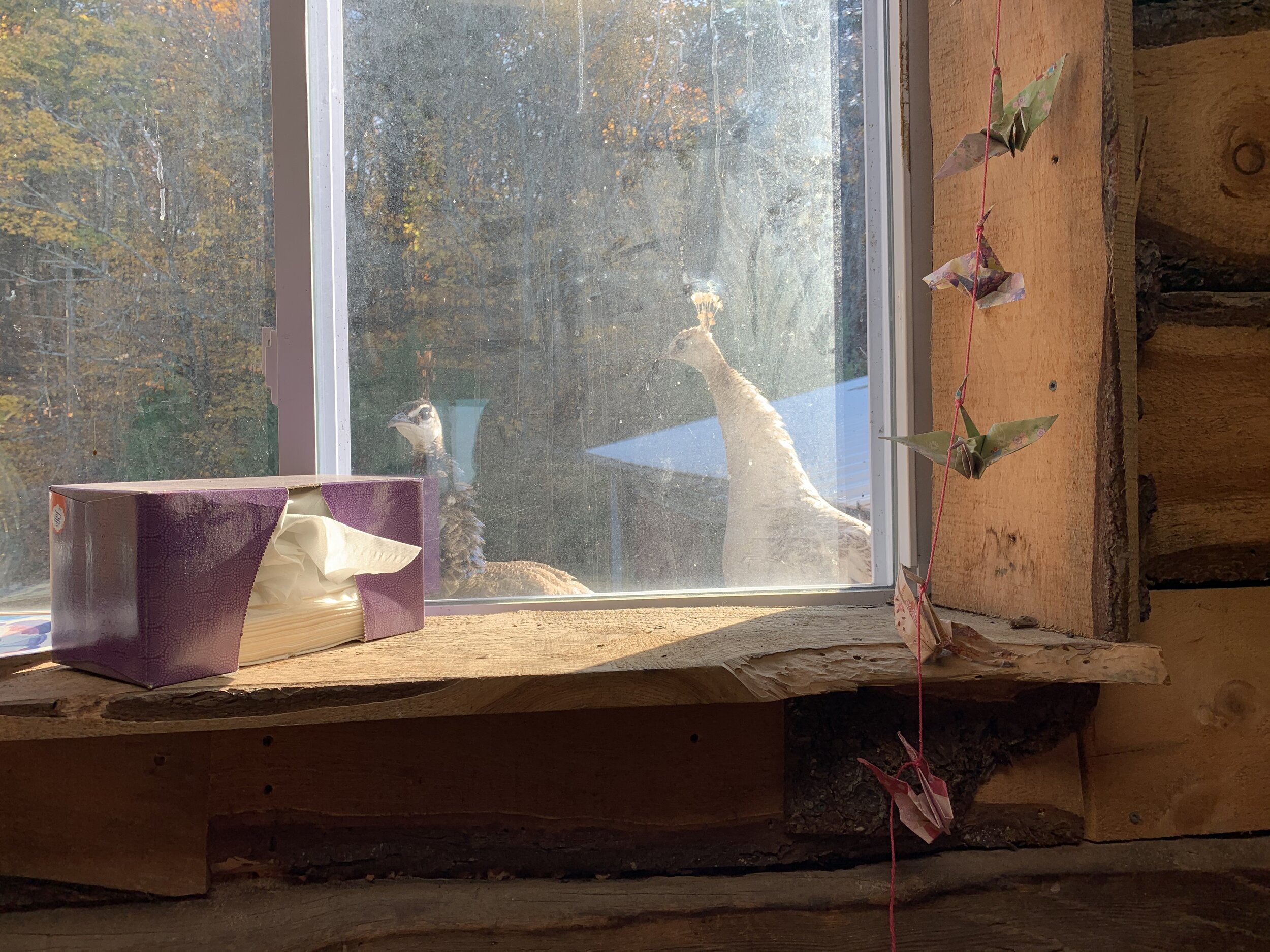Eight Lessons from the Farm
“I went into the woods because I wished to live deliberately, to front only the essential facts of life, and to see if I could not learn what it had to teach…I wanted to live deep and suck out all the marrow of life…to put to rout all that was not life, to cut a broad swath and shave close…” — Henry David Thoreau, Walden, p. 74
“No, you do not have thousands of years to live. Urgency is on you. While you live, while you can, become good.” – Marcus Aurelius, Meditations, 4.17; p. 26
I spent the past month living and working on a farm. I heard about the WWOOF (WorldWide Opportunities in Organic Farming) program through a few friends, and I applied to be one of those volunteers who go to one of the thousands of registered host organic farms around the world. At a farm, volunteers work about 6 hours a day and receive in return room, board, and education in practical farm skills and theory of (for example) sustainable food systems. It’s a cheap way to travel, to gain new perspectives and skills; for me—in the midst of an unexpected months-long period of what felt like waiting in limbo, due to the COVID-19 pandemic—it seemed like the perfect opportunity.
I had many reasons for going: to find a change of scenery after months of quarantining at home (during which I graduated via virtual ceremony from Dartmouth College), to donate some of my time to help others, to reconnect with nature, to reconnect with myself. I wanted to use the unexpected extra time I had before my pushed-back city job start date to do something I probably wouldn’t have the chance to do again for a while. I wanted (because I have still not gotten over my high school fascination with the American Transcendentals) “to live deep and to suck out all the marrow of life” (Thoreau, Walden, p. 74) and to (only half-jokingly) search for “inner peace”—a secure sense of inner calm and contentment. I wanted to sweat, to work with my hands, to breathe in fresh air and know I was alive and capable of doing things in the world.
I also knew that the experiences in life that had made me the most myself were those that (i) flung me out of my comfort zone and (ii) gave me an opportunity to discover a markedly new perspective on a way of living and being in the world. I thought living and working on a farm would satisfy both conditions; I was right.
I lived and worked with ten other volunteers ranging in age from about 18-35 years old. I lodged in a barn attic bunkhouse with seven of them. My first impression of the barn was that it was probably the most eclectic place I had ever visited, let alone resided. There were piles of equipment and past projects, full of dust and promise of some inevitably interesting discoveries, should one dare to dive in their depths. There were art pieces; there were many barn cats, and some chipmunks trying to sneak into the kitchen, hunted by the cats; there was worn furniture and beautiful woodwork with bark-covered, unpolished edges.
We rose early to feed the animals (goats, chickens, ducks, peacocks, cows, donkeys, a pig, and a horse), collect chicken and duck eggs (duck eggs are slightly larger and more oblong with more orange color to their yokes, but overall taste very similar to chicken eggs), harvest vegetables (peppers, kale, nasturtium, carrots, eggplant, radishes, corn, and a few late tomatoes), and then by 9AM we were making a beautiful breakfast from those fresh eggs and vegetables. Then onto the rest of the day: working—on self- or other-directed projects—until lunch, which we made and ate in community. Then, working again until dinner, which we also made and ate in community. Finally, gathering around the wood-burning stove, we read, wrote, tended the barn cats, finished the conversations that started at dinner and began new ones, until sleep called.
On this particular farm, initiative, flexible self-management, and independence proved essential in a sink-or-swim kind of way. The farm hinges on volunteers teaching other volunteers, and it was largely up to each volunteer to identify and secure the instruction they wanted. One was also much more likely to learn something there by watching someone else do, and then doing oneself, than having someone else explain and walk one carefully through something. The couple who runs the farm gave lists of tasks to be completed based on their own understanding of what the farm needed, to be divvied, managed, and completed by the volunteers. Many projects were also purely driven by a particular volunteer responding to a problem they themselves observed, out of their own interest, with support given upon resourceful request. This atmosphere meant a lot of creative freedom to those who embraced it, and a frustrating lack of structure to those who wanted it. It was a chance to jump into the unknown, to try things, and to cultivate an empowering, enterprising disposition conducive to contribution and resourceful creativity.
I am happy to say that I took some lessons and reminders from this experience. Though I still feel I am processing much of what I learned, I would like to share what I take to be the most significant and potentially valuable conclusions I have drawn so far.
One: Regardless of whether we are inside the structured path we imagined for ourselves, life is now.
The stepping-stone path for myself had been clear: school, university, graduation, job. COVID-19 had knocked my plan off the rails—very, very fortunately, I still graduated, though virtually, and had my job, though the start date was pushed back to 2021. I suddenly had an unexpected months-long interim. It was easy to feel like my life was somehow “on pause”—just because I was between the structured phases of my life I had planned.
I saw, however, that my fellow volunteers were not following so linear a path. Some spent their years travelling, WWOOF-ing around the country and the world, stopping in a city every so often to make some money to fund further travels. A few had lived there for months out of their tricked-out trucks, working on the farm and fixing their trucks in their free time, and had no particular plans to leave the farm anytime soon, especially as winter set in. A few were freshly graduated students like me, looking for something new, especially amidst COVID times. One was a college freshman, attending classes remotely during her time there. Some had been to college; some had not, or had just graduated high school and had no plans to go. One had picked up her young life to attend culinary school because she wanted to learn how to make a perfect croissant; now she’s a 21-year old living in the city, working in a bakery and loving life. One had been a high school math teacher in one of the poorer areas in New York City. One majored in costume design at a fine arts school but then became completely disillusioned with the commercial theater industry, and she is now exploring her newfound passion and burgeoning success in environmentally conscious fashion design.
They, like me, had chosen to come to the farm out of a desire to learn and to contribute something valuable with their present moment. They, like me—like each one of us, as Marcus Aurelius reminds us so many times in his Meditations (one of the books I took up at the farm)—have only the present moment to live, to contribute, to grow. Through speaking with them about their experiences, reflecting on the words of Aurelius, and living there at the farm, I came to the simple but profound realization that, regardless of whether we are inside the structured path we imagined for ourselves, life is now. We live it however we are living in this exact present moment; we do with our lives only what we are doing right now.
In the words of Marcus Aurelius:
“…there is a limit circumscribed to your time—if you do not use it to clear away your clouds, it will be gone, and you will be gone, and the opportunity will not return…Life for each of us is a mere moment, and this life of yours is nearly over…” – Marcus Aurelius, Meditations, 2.4
This realization seems to me somewhat frightening but also emboldening. We are living now; that seems like all the permission and motivation we need to do just that—to live, to do, to take risks, to notice and enjoy the beauty that surrounds us, to try, to contribute, to (most importantly) improve our character, to take opportunities to grow, to become good.
Two: There is an inner fortress to which we can retreat to find peace, no matter our external circumstances.
In the film Revolutionary Road, April and Frank marry in 1948 America and find themselves suddenly mired in a life of brutal convention: she has a baby, they move out to the suburbs, he gets a desk job. They quickly become despondent. April desperately campaigns that they break from convention and move to Paris to find their passions and happiness. However (without giving too much away), a viewer can surmise that their move to Paris will not instantly solve all of their problems. Similarly, I realized that just showing up at the farm would not solve all of mine.
When I went to the farm, I wanted a change of scenery, of perspective, of day-to-day. I sought a sense of inner calm and contentment. At first, I was disappointed: just being there in the woods was refreshing, but it did not bring about spontaneous, dramatic change in my restless state of mind. Just moving to Paris wasn’t going to cut it. That said, I do think that going to the farm (and moving to Paris) serves at least as a better chance to break from routine, to change. But it only lays a foundation for the work that the changer has to bring about herself.
There, at the farm, surrounded by nature, working with my hands, noticing all the life around me, and reading Marcus Aurelius’s Meditations, I actually found what I was looking for. I read Aurelius describing the idea of an inner fortress to which we can retreat to find peace, no matter our external circumstances (4.3)—and after three weeks there, I realized what he meant. Further, I realized that keeping our path to this peaceful inner fortress clear, and maintaining clarity and peace of the fortress itself, can afford us retreat to this peace at any time. I think these are the difficult parts—access to that inner place and what I’ve essentially come to think of as mental housecleaning of that place—but I think it may begin with gratitude and deeper awareness of the other living things around you.
Gratitude is like Windex. One day at the farm, I was cleaning these large windows that had a beautiful view of the autumn tree-studded hills below—or they would, if they hadn’t collected so much dust and random flecks of what was probably peacock droppings (they love to stand on roofs). The Windex I was using worked like a charm to clear it all away, and I was rewarded with that beautiful view. Gratitude is like Windex. Most of the time, it makes fairly simple and easy work to clean away the dust, the muck, the anxiety, the distractions. It lets you access the beautiful sanctuary beyond. Because it’s so good at cutting through the muck, gratitude is also one of the “few and fundamental” doctrines (Aurelius 4.3; see below) that I like to try to keep in the inner fortress to keep it clean. I find it’s “sufficient at one meeting to wash away all your pain and send you back free of resentment at what you must rejoin” (Aurelius 4.3; see below). It affords a feeling of being grounded and refreshed.
There are living things all around us. Becoming more deeply aware of all the plants, animals, insects, and humans around us—all the life teeming there, all the energy and processes that go into keeping each of them and us alive—helps not only to generate more gratitude, I think, but also to cultivate humility, awe, wonder, compassion, empathy, and a healthy dose of perspective. I think deeper awareness of all this life is especially helpful to develop the effective “few and fundamental” principles that are the warm benches, cool waters, and sunlight-drenched floor of the restorative inner fortress… for example, that change is constant; that our time to grow is short; that we are one in a universe of many lives. Reflection on the existence and wonder of the other lives around us can get us there.
In the words of Marcus Aurelius:
“Men seek retreats for themselves—in the country, by the sea, in the hills—and you yourself are particularly prone to this yearning. But all this is quite unphilosophic, when it is open to you, at any time you want, to retreat into yourself. No retreat offers someone more quiet and relaxation than that into his own mind, especially if he can dip into thoughts there which put him at immediate and complete ease: and by ease I simply mean a well-ordered life. So constantly give yourself this retreat, and renew yourself. The doctrines you will visit there should be few and fundamental, sufficient at one meeting to wash away all your pain and send you back free of resentment at what you must rejoin.” – Marcus Aurelius, Meditations, 4.3
“So one should pass through this tiny fragment of time in tune with nature, and leave it gladly, as an olive might fall when ripe, blessing the earth which bore it and grateful to the tree which gave it growth.” – Marcus Aurelius, Meditations, 4.48
Three: We must eat life to live.
Regardless of whether we eat a carnivorous, vegetarian, omnivorous, or vegan diet, we consume of other living things (their lives or resources) to nourish our own living bodies. By cultivating conscious awareness of and gratitude for these lives from which we take, we humans can advance our nourishment—perhaps even along spiritual, emotional, and mental dimensions as well as physical—and overall well-being.
To harvest in the morning—taking warm eggs from the clucking chicken, breaking off leaves from the kale plant, plucking a ripe eggplant from the stem—and to prepare and to eat them later that day are acts that especially allow for this gratitude and awareness because they allow for greater proximity to the lives from which we take. Nothing I’ve experienced tastes better or offers a feeling of more humility, appreciation, connectedness—because I was proximate to, interacting with, performing the acts involved in taking from life to nourish my own life.
One day, for example, I was eating an apple fresh from the orchard. It was small, and, when I bit into it, a little grainy. At first, I was just thinking about its (lack of) taste—how it differed from those grocery store apples, and not in a way flattering to the apple I was presently consuming. But then I thought of all the materials and energy that made this apple possible (to wax poetic: all the earth, wind, air, and fire; all the starstuff; which also make up my body, my life)—I thought of the plant that gave of itself so laboriously to produce this fruit. I became much more in awe, in wonder, and thankful. And the apple became much sweeter.
Four: It is satisfying to live in a state of doing.
A fellow volunteer Sophie said this on the phone with me before I came to the farm, describing the culture of the community: “We just live in a state of doing.” After just a few hours there, I understood what she meant: the initiative, the self-management, the creativity, the resourcefulness necessary of the volunteers there to have a satisfying experience. I felt surprisingly at home in that sort of environment—I’m proud that one of my fellow volunteers came to call me “the problem solver,” e.g. “The problem solver strikes again!” as I grew in this disposition of being biased to creative, resourceful, contributive action.
It is fulfilling to have a bias to action to pursue meaningful and contributive ends; to be resourceful, creative, and decisive, to notice problems and to be ready to respond to them with a prototype—that is, something quick, simple, and iterative, to test and get feedback, free from fear of failure. On several different occasions I woke up not knowing I would, on my own initiative, try to build a prototype shelter for a cat, retrieve 34 lost chicken eggs and 36 lost duck eggs (separate occasions), safely remove ticks from cats, mix a homemade house cleaner, invent a new dish for everyone with only available ingredients, or build an art piece with a scrap glass pane and collected autumn leaves. Put simply, it’s amazing what you can do if you just do it.
Five: There is a certain grace in repetitive physical tasks; or, any task can become especially dignified and renewing if we perform it as if it were the last of our lives.
On the farm, I dug a trench, chopped vegetables, mucked the chicken coop, swept and vacuumed, cleaned, brushed, spun, and wove goat fiber, and moved firewood. I would spend whole workdays on some of these tasks. Many were difficult and exhausting. I found a certain meditative quality in them—the body works, the mind relaxes. I found this grace especially when combined with the Aurelius-inspired notion that we should perform each task as if it were the last of our lives: with complete presence, gratitude, and lack of ulterior aim.
Six: New skills take time and persistent practice to learn!
It had been so long since I had tried to learn something completely new, in which I had absolutely no foundation or similar experience. Spinning fiber into yarn looked so easy, so when I sat at the spinning wheel for the first time, I was shocked that I did not do it fluently within 15 minutes—or two hours—or 10+ hours over the course of a week—or 20+ hours over the course of two weeks. It was humbling to re-learn this lesson. When, through persistent practice, I finally became fluent at the wheel sometime at the end of my third week, it was a feeling of unique satisfaction.
Seven: Don’t step on the ones you’re trying to feed.
To my horror, I once accidentally stepped on a baby chicken’s leg in my rush to feed her and her fellow birds. In my rush to complete my task—the ultimate end of which, arguably, was to promote the birds’ well-being—I did something antithetical to that ultimate end. Similarly, in our rush to push out a product, etc., we might do something that harms the populations we’re ultimately trying to help if we don’t keep the ultimate end of promoting well-being firmly and presently in mind.
Eight: Take care of your gear.
My dad made this mantra part of our upbringing. We would arrive back to camp from hiking, exhausted, just wanting to collapse on a cot or chair or the ground, but with this phrase “Take care of your gear!” we’d all push through just a little more to check our packs, arrange everything, clean or set to dry, and only then allow ourselves to rest.
At the farm, I had work gloves, boots, jackets, and an awesome pair of overalls. Sometimes I didn’t like wearing these things because it was hot or cumbersome. When I did wear gear, as always, that phrase “Take care of your gear!” sounded in my head when I just wanted to rest after a hard day’s work—I’d clean, arrange, check for insect passengers, set to dry. But all those times I didn’t wear the gloves or the good boots, I sustained those little injuries—scratches, cuts, blisters, soreness.
I’d like to say now that this phrase “Take care of your gear!” also includes your body—one set of equipment you have that’s particularly difficult and costly to repair (let alone replace). Your hands, your feet, your digestive tract, your brain, your heart: these are much more costly and difficult to repair (let alone replace) than, for example, gloves, good shoes, and the effort of better food, exercise, rest, and reflection. I started wearing my work gloves consistently. I resolved to eat as healthily as I did on the farm at home. I’m more consistent in my exercise, rest, and reflection routines than I’ve ever been. Take care of your gear.
—
This experience helped me to learn so much of what it is to live intentionally, with gratitude, and with a sense of inner calm and contentment: I am so far convinced that it begins with a deeper awareness of all the living things that surround us and with a realization that life is now. We have the present moment to be, to do, to grow as we are—one in a web of many living things.
“Revisit…the many indications that the world is a kind of community.” – Marcus Aurelius, Meditations, 4.3
I am so grateful to the existence of the WWOOF program, to Magic Forest Farm, to Joan and Jason, to all my fellow volunteers (Harlie, Sophie, Beau, Lola, Eytan, Itamar, Eric, Scot, Thomas, and Erin), to my dear friend Jeff for the conversations we had via phone while I was there, and in a different way to all the plants and animals at the farm that supported and taught me so much.
Works Cited:
Aurelius, Marcus. Meditations. Translated by Martin Hammond. Penguin Classics, 2006.
Revolutionary Road. Directed by Sam Mendes, performances by Leonardo DiCaprio and Kate Winslet, BBC Films, DreamWorks Pictures, 2008.
Thoreau, Henry David. Walden. 1854. Barnes & Noble Classics, 2003.
All photographs were taken by Hailey Scherer, 2020.






















































